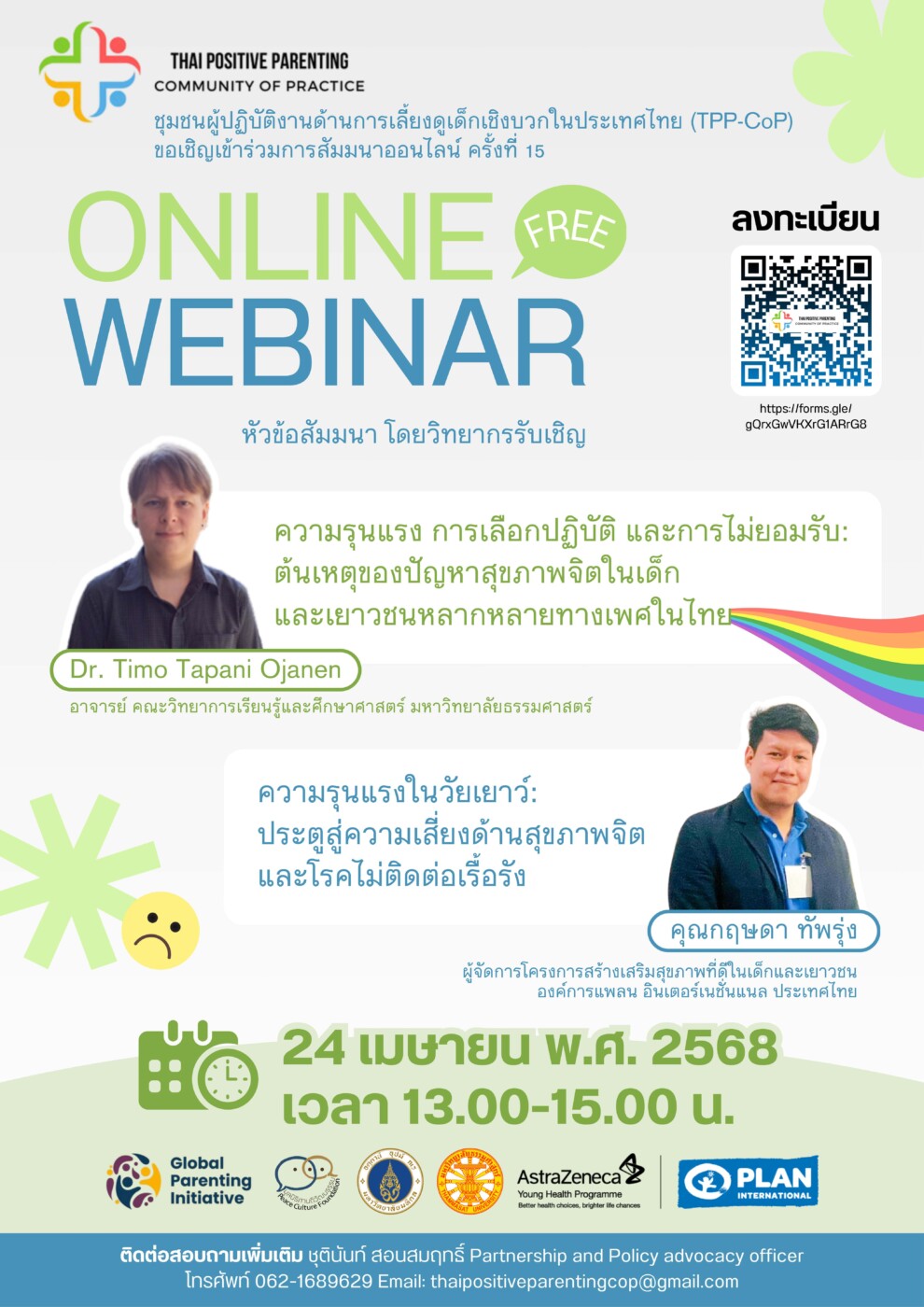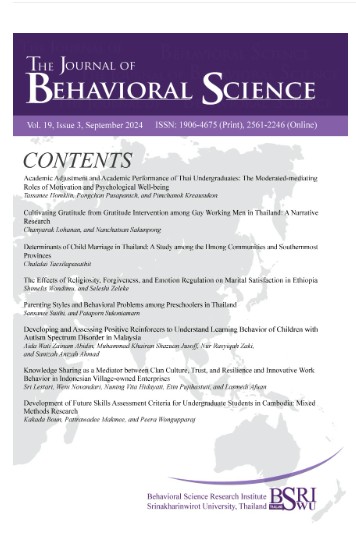Author
Niticharya Chaiyen
Faculty of Arts, Chulalongkorn University
Siriporn Phakdeephasook
Faculty of Arts, Chulalongkorn University
Abstract:
This article aims to study a relationship between language and ideologies in the discourse of parenting by medical specialists. The data was collected from top three most popular Facebook pages. from March 4, 2015 - December 2017, a total of 254 articles from the pages. using the framework of Critical Discourse Analysis (CDA). The analysis reveals that three ideological concepts are represented in the discourse of positive parenting. First, the traditional parenting in Thai society which emphasizes the power of parents is “negative parenting”. Second, the theoretical-based parenting highlighting the right of a child is “positive parenting”. This method results in more parenting efficiency. Lastly, “desirable” parents should rely on this theoretical-based way of parenting. There are five linguistic strategies used for representing these ideological concepts. The strategies include the use of lexical selection, different sentence structures, repetition, rhetorical questions, and creating intertextuality. The socio-cultural factors related to the discourse production and consumption includes the Western concept of “positive parenting”, the traditional parenting in Thai culture, the current condition of families in Thai society. The findings reflect that the theoretical-based discourse of “positive parenting” by the medical specials attempts to define a “desirable” pattern of parenting, which may affect the perception, cognition, and behavior of the message parenting in Thai society to tend to be more Western-style.
Method Critical Discourse Analysis
วารสาร : Journal of Art and Thai Studies
Year: 2024 2022
Link for more information https://so08.tci-thaijo.org/index.php/artssu/article/view/249




